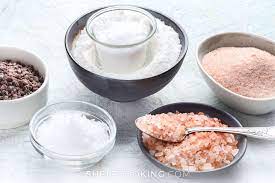Nutritionists and cardiovascular experts have warned against high sodium (salt) intake due to its ability to increase blood pressure, the danger it poses to cardiovascular health and its ability to predispose people to noncommunicable diseases.
They, however, recommend the consumption of potassium salt substitutes instead of dietary salt (sodium chloride) to reduce such risks.
According to them, sodium and chloride in salt can cause an expansion of the extracellular fluid volume, which over time, causes a rise in blood pressure that results in strokes, heart failure, heart attacks, and kidney disease.
While calling for the replacement of sodium chloride with salty-tasting potassium chloride, experts said decreasing dietary salt intake from the current global levels of 9–12 grams per day to the recommended level of less than 5 grams per day would have a major impact on blood pressure and cardiovascular disease.
The professionals said that salt reduction strategies are best in the prevention of global noncommunicable diseases and can avert over yearly 2.5 million deaths from heart attacks and strokes.
According to the World Health Organization, potassium salt substitutes are alternatives to regular salt both as an ingredient of pre-packaged foods and as salt added to food and beverages by consumers.





































